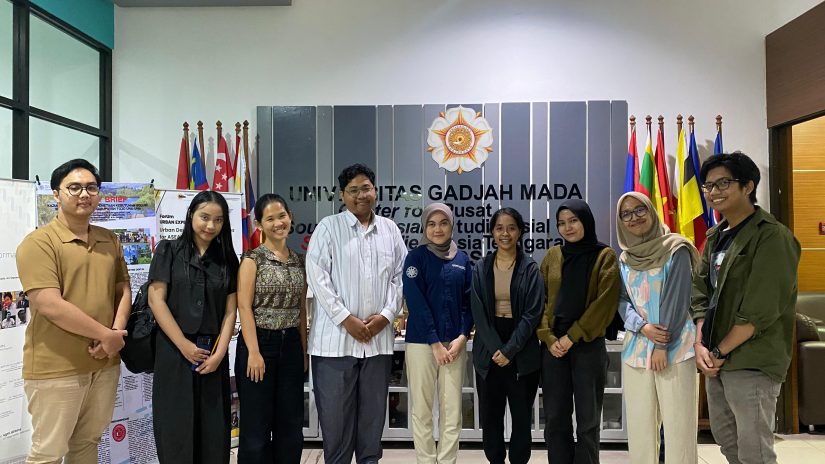
On Wednesday, March 27, 2024, Luzinha Faria Faculto de Jesus, an International Relations student and an intern at PSSAT UGM, delivered an engaging presentation about the history and characteristics of Timor-Leste. Luly began the presentation with an enthusiastic overview of Timor-Leste’s history, covering periods of Portuguese, Japanese, and Indonesian colonization, leading up to the country’s official declaration of independence on May 20, 2002. Luly also detailed Timor-Leste’s geographical location and tropical climate, characterized by mountains and coastlines. She shared a local legend about the island’s origin, involving a crocodile that transformed into land to provide a home for a boy who had saved it.
Luly then discussed the socio-cultural aspect of Timor-Leste. She noted that the country has a population of 1.3 million, with 36.8% living in urban areas, and the capital, Dili, being the most densely populated city with 150,000 residents. Timor-Leste’s official languages are Portuguese and the local Tetum, which is divided into Tetum Terik (rural) and Tetum Prasa (urban). Luly highlighted the linguistic influences from Portuguese and Malay-Indonesian in Tetum, citing examples such as ‘udan’ from ‘hujan’ (rain), ‘tulun’ from ‘tolong’ (help), and ‘manas’ from ‘panas’ (hot). She also drew parallels between Timor-Leste’s traditional textiles and those from Eastern Indonesia, noting differences in fabric patterns. Additionally, Luly showcased a video of a traditional Timorese dance performed to welcome guests.
In the final part of her presentation, Luly explored Timor-Leste’s national identity, including its semi-presidential democratic government, the symbolism of the flag’s red, yellow, black, and white colors representing the struggle for liberation from colonialism, and national emblems such as Belak, symbolizing national unity. She also played the national anthem, which conveys anti-colonial and anti-imperialist values.
Before concluding, Luly highlighted Timor-Leste’s tourist attractions, including the Cristo Rei statue and Atauro Island, and showed a short video on the history and intricacies of Timor-Leste. To introduce her peers to Timorese pop culture, she played a popular song, “Terus Ba O,” covered by Indonesian singer Mario G Klau. The presentation ended with a lively Q&A session where participants eagerly asked questions and engaged in discussions. Overall, Luly’s comprehensive and informative presentation was well-received and enriched the participants’ understanding.
